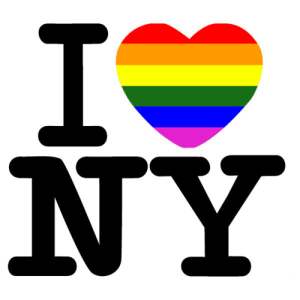In 1993, Anne Fausto–Sterling wrote an essay entitled “The Five Sexes,” in which she suggested that instead of two sexes, there are actually as many as five.
Where do these other sexes come from? They come from the “I” in LGBTQIA, which stands for intersex. According to Fausto-Sterling, there are three types of intersex people: herms, or true hermaphrodites who are equal parts male and female, merms, or hermaphrodites who are more male than female, and ferms, or hermaphrodites who are more female than male.
What is intersexuality? Someone who is intersex is a hermaphrodite; someone who is born with both male and female genitalia. Aside from genitalia, the person may also develop both male and female secondary-sex traits, such as breasts or facial hair.
Intersexuality has many causes. One common cause has to do with chromosomes: every human has 23 sets of chromosomes. The 23rd chromosome is the sex chromosome because it determines what sex we are. If the 23rd chromosome is XY (or comprised of an X chromosome and a Y chromosome), the person is a male; if the 23rd chromosome is XX (or comprised of two X chromosomes), the person is a female. However, some genetic conditions cause a person’s sex chromosome to be XXY- in other words, both female (XX) and male (XY). Still another genetic condition can cause a person to be XXXY- a full set of both male and female chromosomes.
There are many other causes for intersexuality, too; for example. It can caused by hormone receptors that don’t, well, receive hormones. NOVA’s website outlines the many, many causes of intersexuality here: http://www.pbs.org/wgbh/nova/body/intersex-spectrum.html
What does this all mean?
One of the main issues the intersex community is confronted with is whether or not they fit into a neat-and-tidy definition of sex. Many parents, upon finding out their child is intersex, opt for corrective surgery so that the child is physically either female or male. Because parents find out their child is intersex when the child is born, corrective surgery often happens within days of the child being born. Many people in the intersex community feel this is unethical for many reasons: for one, being intersex is not the same as being a female with some male genitalia (or the opposite); rather, it means the person is literally both male and female. Many intersex people whose parents have opted for corrective surgery, upon finding out about their intersexuality, wish their parents had not chosen to surgically alter the genitalia. While their parents certainly have the right intentions- they want only to protect their child- is this really ethical? After all, being intersex is not the same as being a female with male genitalia.
Another interesting question is: how to intersex people define their sexual orientation? Can we even hold them to our gender-binary sexual orientations? Let me explain: if an intersex person with both male and female chromosomes and genitalia is sexually attracted to a female, is that intersex person a lesbian woman or a straight male? This is a question I cannot answer; the best I can do is say this depends on the individual.
The deeper question, as I mentioned above, is can we hold intersex people to sexual orientations that rely on people being either male or female? As mentioned above, intersex people are not truly male or female (though they may feel more drawn to one sex and surgically modify their genitalia to reflect that and live as such- in my opinion, should an intersex person choose to choose a gender and stick with it, then I think it right to consider this person a member of whatever gender ze [s/he] has chosen- but I digress).
Intersexuality has not been addressed very thoroughly or publicly in the LGBT movement. This post is not meant, in any way, to dehumanize or humiliate intersexuality. I wish only to present the topic and explain it a little further- please comment if you feel I have been offensive to the intersex community and I would be happy to change my language so that it is not perceived as such.
Thoughts? Discuss. It’s a lot to take in but it really is a topic that we as a society need to explore.
XO ~J
PS: I also wanted to note that sometimes, countries or states (in the USA) have laws that define gender. My knowledge on this is not extensive but I do recall that an intersex person who was considered a man in Scotland and a woman in the US because Scotland defined this person’s gender by levels of testosterone in the brain, whereas in the US it had to do with genitalia [if I remember correctly. Feel free to comment].
